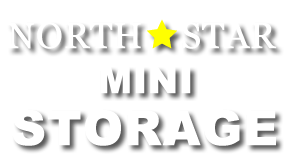Bulk Buys and Your Storage Unit Rental
Bulk buying can save you time and money. But it only makes sense to buy from warehouse clubs or score super-sized sale selections if you have the space to store your finds. That is, unless you rent a storage unit. If you buy in bulk, take a look at what you need to know about off-site self-storage.
Follow the Rules
Self-storage facilities typically have rules that govern what you can and can’t store. Food storage (especially perishable items) is generally prohibited. Food can attract pests, support mold growth, or cause unpleasant odors. Talk to the storage facility’s management and review the site’s rules before you attempt to store your bulk food buys in a rental unit.
Don’t assume packaged, wrapped, or canned foods are acceptable self-storage items. If the facility prohibits foods, this likely means everything — regardless of what it’s in or when it expires.
Along with food, check with the facility for other possible prohibited items. These often include hazardous materials such as aerosol cleaners/chemicals, solvents, paints, propane, gasoline, motor oil, lighter fluid, pesticides, or pool chemicals.
Start with the Heaviest Selections
Now that you know what not to store. Where should you start with your to-store items? Move the heaviest bulk buys in first. These items need to sit on the floor and can provide a base for lighter buys. The strategy of large items on the bottom and light ones on top reduces the damage risks. If you pile heavy items on top of light one you could crush, fold, or break whatever is on the bottom.
Use Strategic Shelving
You don’t have to pile everything on the floor of the storage unit. Basic shelving units can help you to save space in your unit. Shelving units are ideal for:
- Paper towels, napkins, and facial tissues. When bulk buying, these paper products typically come in large multi-packs. You can either store these larger items as-is or you can take individual rolls/packs out the make more room on the shelves.
- Other paper products. You can also store paper plates and other similar serving pieces on a shelf. Keep plates and bowls in their original packaging or store them in plastic sealable bins.
- Plasticware. The boxes of forks, spoons, and knives you bought can stay on shelves too. Like with plates and bowls, you don’t need to remove these from their original packaging. If you want to keep everything in one place, create a plasticware bin for ease of organization.
- Hygiene and beauty products. Think of the way stores stock their shelves. Create lines of shampoo bottles or stack soap in vertical towers to save space.
Whether you store your bulk buys in bins, boxes, or on shelves, you need to know what is where — especially if you can’t readily see the labels. Read on for more information on organizational ideas to make this easier.
Make a Map
An inventory or map of the storage space can save you time and energy when it comes to finding specific bulk buys. How should you make a map? Get creative and:
- Choose a method that works for you. If pictures help you to find each item with ease, create a drawing. But if you prefer lists, create a written guide or spreadsheet.
- Keep your map nearby. If possible, store your map on your phone. Email lists or spreadsheets to yourself or take photos of drawings/pictures.
- Include everything. If you have other items in storage (not just bulk buys) include these too.
- Categorize everything. Create categories, such as paper products or hygiene items.
Your map won’t just help you remove items with ease. Use it as a guide as you select what you need to store and what else you need to buy.
Remember Expiration Dates
Some long-lasting products like shampoo and nonperishable foods won’t go bad for years, if at all. But other items, like grains, flours, and other bulk food items, can go bad sooner if they’re not stored properly. If you intend to use your products soon, then make notes of when you put them in the storage so you don’t neglect to take them out and use them.
f you intend to keep them in storage for a long time, make sure you store your items properly. Keep grains and pastas in containers that pests can’t penetrate, and consider a climate controlled unit to keep mold from affecting your bulk buys. A drier, colder interior climate is well advantageous to mold growth, so your bulk food items will be able to last longer.
Do you need self-storage rental for bulk items? Contact North Star Mini Storage for more information on storing options. We have units of different sizes to choose from, so contact us to discuss your options and start storing your bulk items and food today.



